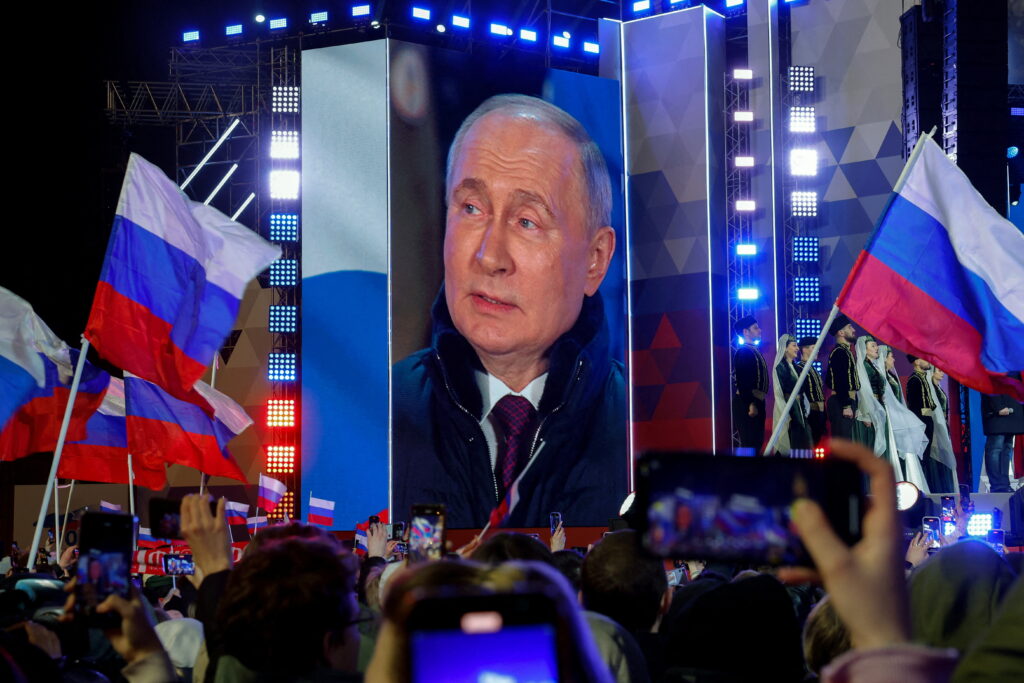In 2017, I set out to evaluate changes Vyacheslav Volodin was making as the new State Duma speaker – a position to which he was elected on 5 October 2016. The analysis built on an article of mine from December 2016 (for Intersection – the predecessor of Riddle) titled “Volodin’s Duma”. The new speaker’s reforms included attempts to improve perceptions of the Duma; to increase deputies’ discipline and professionalism (including through a crackdown on absenteeism from plenary sessions); to increase the efficiency of the law-making process (including by filtering initiatives before Duma introduction); and to make the Duma more assertive in its interactions with the government.
I concluded in 2017 (somewhat obviously) that it was “still too early to tell what long-term effects [these] recent reforms will have on law-making in the lower chamber, as well as [on] perceptions of the […] [State Duma’s] place in Russian politics”. But I also ended by warning that “the dominant role played by Volodin in […] [the] genesis [of these reforms] might prove a hindrance to establishing lasting, depersonalised sources of legislative autonomy.” Are we in a better position to evaluate Volodin’s impact now, particularly regarding the Duma’s relations with the government?
A report recently released by “Platforma” – a Moscow-based social planning agency, founded in 2015 by Aleksei Firsov – might help in answering this question. The report – which sets out to evaluate developments during the Duma’s seventh convocation, for which Volodin has been speaker – is based on 40 interviews with a range of actors, including sitting Duma deputies and Federation Council senators, members of Duma social councils, academics and experts, and members of the media and business communities. An explicit methodology is not presented and discussed in the publicly available presentation of the report. Neither is the source of financing for the report made clear. In spite of these uncertainties, the report provides an interesting snapshot of Volodin’s speakership so far.
A critical Volodin
Some of the report’s core conclusions resonate with my early take on Volodin’s tenure. Insofar as the State Duma has become a more important actor in Russian politics, this relates primarily to Volodin’s empire-building drive to create his own power vertikal’, acting as the strict, professional CEO of a disciplined state corporation (in the analogical language of the report). One indication of this is the frequency with which Volodin criticises government actors. Most notably, the speaker appeared to relish asking Minister of Economic Development, Maksim Oreshkin, difficult questions during the latter’s appearance at a “Government hour” query session in the Duma in March 2019. So unusual was this episode that the analyst Tatyana Stanovaya included it in her discussion of the ways in which Volodin was “a speaker for the systemic opposition”. Beyond needling one minister, Volodin has also criticised the government more broadly for introducing amendments to bills in second reading that touch on matters outside the scope of the initiatives as originally submitted – something that violates the Duma’s regulations. And the speaker has criticised the government for the long time it often takes to provide reports on deputy-submitted bills, saying that these delays – insofar as they hold up the law-making process – are “similar to a crime”.
In a sense, this is merely political theatre. Volodin is trying to demonstrate his – and “his” institution’s – importance by criticising the government, but in a way that doesn’t really jeopardise the government’s legislative agenda. We haven’t, say, seen Volodin spearheading frequent rejections of government-introduced bills. His bark is worse than his bite.
By criticising the government, Volodin is in good company: at the “Russia Calling!” event on 20 November 2019, Putin criticised the government for the lack of growth in Russian citizens’ real incomes. The government is a convenient whipping boy for the country’s woes.
Unsurprisingly, criticism from Volodin of President Vladimir Putin is unthinkable. To be sure, Volodin clashed with the Presidential Administration early on in his tenure as speaker around the issue of Administration officials’ access to meetings of the Duma Council – the lower chamber’s steering body. But this was unsurprising for somebody who had just left a senior, powerful position in the Administration that involved coordinating the activities of the Duma. Now that Volodin was speaker of the lower chamber, he didn’t want his replacement in the Presidential Administration – Sergei Kirienko – interfering in the running of “his” institution.
The reality, though, is that the Presidential Administration continues to set the general policy agenda. When it’s clear that Putin and his Administration want a particular initiative to become law, Volodin will enthusiastically execute the Kremlin’s wishes, using his command over the Duma and its deputies to demonstrate loyalty and efficiency. We’ve seen this, for example, with the swift passage of a president-introduced bill on organised crime, passed in first reading in the Duma on 21 February 2019 and passed in third reading on 14 March 2019. Not one vote was cast against the presidential bill during Duma passage.
At the same time, could Volodin’s reforms have empowered rank-and-file deputies to criticise the government, even if only in certain less high-priority policy areas?
A critical Duma?
At first sight, a recent account suggests so. On 10 November, Vedomosti – the respected business daily – reported something that might seem unusual. Writing about a legislative initiative introduced by the government into the State Duma, the article reported “unexpected criticism” of the bill from Duma deputies. Why the surprise at this apparent criticism? The answer is simple: the State Duma has been dismissed by many as a “rubber stamp” for bills submitted by the government and the president, particularly since United Russia has held a (super-)majority of seats. Deputies aren’t supposed to criticise government bills. Their role is, rather, to provide uncritical support for the executive’s legislative agenda.
But not all was quite as it seemed with this “unexpected criticism”. Rather than a case of deputies providing sceptical, meaningful, autonomous oversight of a government policy proposal, the dispute, in fact, reflected a policy conflict between members of the executive and other elite actors. Specifically, the bill – which proposes to make Promsvyazbank the main “support” bank for the military-industrial complex – was drafted by the Ministry of Finance (following an order by President Vladimir Putin to put together an initiative), but is currently encountering resistance during Duma passage from the Ministry of Defence, as well as Rostec (a state corporation).
Why are federal ministries and a state corporation fighting over the content of a bill submitted by the government to the federal legislature? After all, these disputes are supposed to be ironed out before the government decides to introduce a bill for parliamentary passage. The trouble is, though, that there are a number of reasons why these intra-executive disputes aren’t all resolved before Duma introduction, including time pressures and the exclusion of certain actors in cabinet discussion. (I’ve written more about this here (an academic research paper) and here (a short write-up of this research for a general audience).
This case also shows how even initiatives with the public backing of Putin can encounter resistance from other elite actors, including economic interests. However, this probably reveals more about the sheer range of points on which Putin has, at one time or another, stated a particular position (and the varying importance he attaches to this support), rather than a sign of clear defiance of the president’s wishes.
A venue for other people’s battles
When it’s not waving through initiatives that enjoy the unified support of the executive, the State Duma serves, therefore, as an arena for policy battles between non-legislative actors. Far from being a venue formally meant for the inclusion of non-executive voices in federal decision-making, intra-executive disputes spill over into the legislative stage of policymaking, colonising a space meant for broader debate. Another recent example of this relates to a bill developed, again, by the Ministry of Finance but introduced into the State Duma by a deputy and a senator. Why? This method of using legislator proxies allows the Ministry of Finance to get the bill under consideration in the Duma without first having to get the consent of other parts of the government (including other ministries) – a process that can be exceedingly lengthy. But that also means that other executive actors can use the opportunity of Duma consideration to challenge MinFin’s initiative.
Previously, Volodin has spoken out against this practice – of transposing intra-executive policy disputes into the Duma. But here’s the catch: this very practice keeps the State Duma somehow relevant. Parliamentarians themselves might not act as meaningful checks on executive power, but, by acting as a conflict-resolution venue, the Duma remains part of the action between key political actors. Although Volodin might openly complain about the Duma functioning as a ‘cabinet 2.0’, he is, actually, most likely concerned with ensuring he is consulted during, and involved in, these intra-executive conflicts. There are at least three advantages that Volodin might gain through this. Firstly, by learning of the nature of intra-executive disputes, he gains valuable intelligence on intra-elite dynamics. Secondly, as the speaker of the “Duma as conflict resolution centre”, he can attempt to mediate disputes. Thirdly, by inserting himself as a gatekeeper in the decision-making process, he can reap the power associated with being a veto player.
What about ordinary deputies? What’s in it for them? Working out which interests particular deputies are representing, and how they might be compensated for their shadowy work, is tricky. I attempted to sketch out some links in a co-authored chapter with Ekaterina Schulmann in a 2018 book, informed by the swirl of whispers about such links from insiders and observers. But see the recent Transparency International (Russia) investigation into lobbying in the Duma for a more comprehensive take.
Volodin and Russian parliamentarism
The recent “Platforma” report refers to the lower chamber’s increased “subjectivity” under Volodin. The problem, though, is that the influence of the Duma is very much tied to the central subject – the speaker himself – rather than to the institution as a whole or to the mass of individual deputies. That means that, although Volodin has revitalised the position of parliamentary speaker, the broader health of parliamentarism is less clear. How will the “corporation” function if and when the current CEO leaves his post? With a less ambitious speaker, it’s easy to imagine, say, far fewer cases of criticism directed at the government and a return to Duma plenary sessions with scores of empty seats.
Volodin’s 17 July 2019 article proposing reforms to the 1993 Constitution centred on beefing up the State Duma’s powers relative to the government. And the shift from a nominally semi-presidential constitution to a parliamentary republic is rumoured to be one of the scenarios being entertained in the Kremlin as the end of the current presidential terms in 2024 approaches.
But the rationale isn’t to bolster Russian parliamentarism – to increase the capacity of legislators (as representatives of their electoral constituents) to check the executive. Rather, the goal of both proposals – from the Duma speaker and from the Kremlin – is focused on shoring up the powers of one man: Volodin and Putin, respectively. In that sense, changes appearing to improve the place of parliament in Russian political life are, in fact, primarily attempts to consolidate personalist rule – and are likely to come with all the pathologies associated with it.










